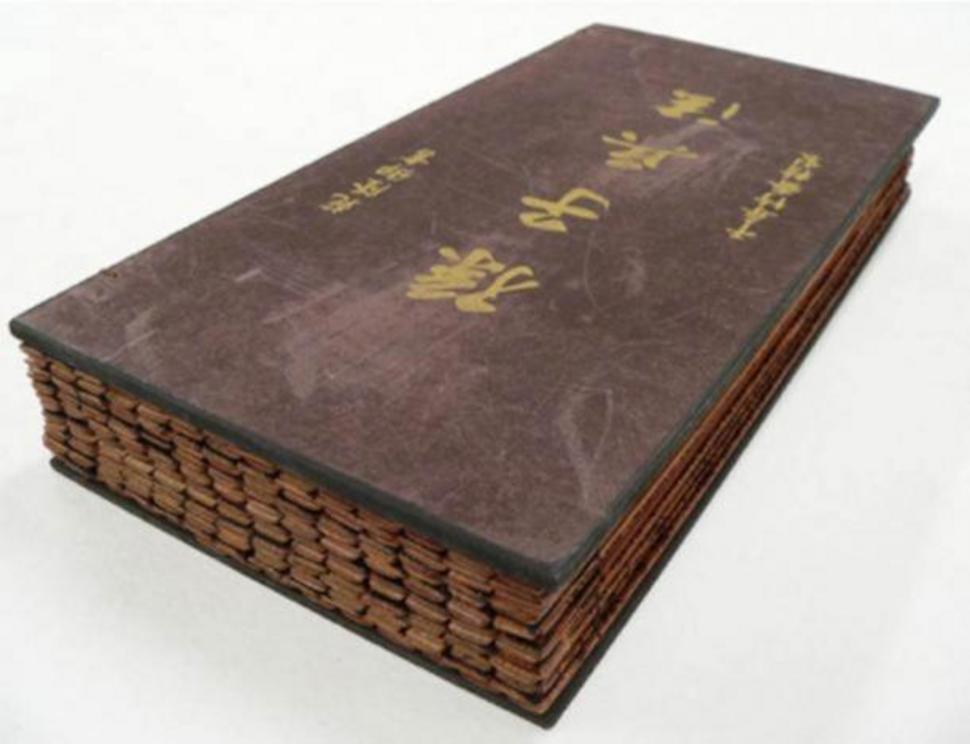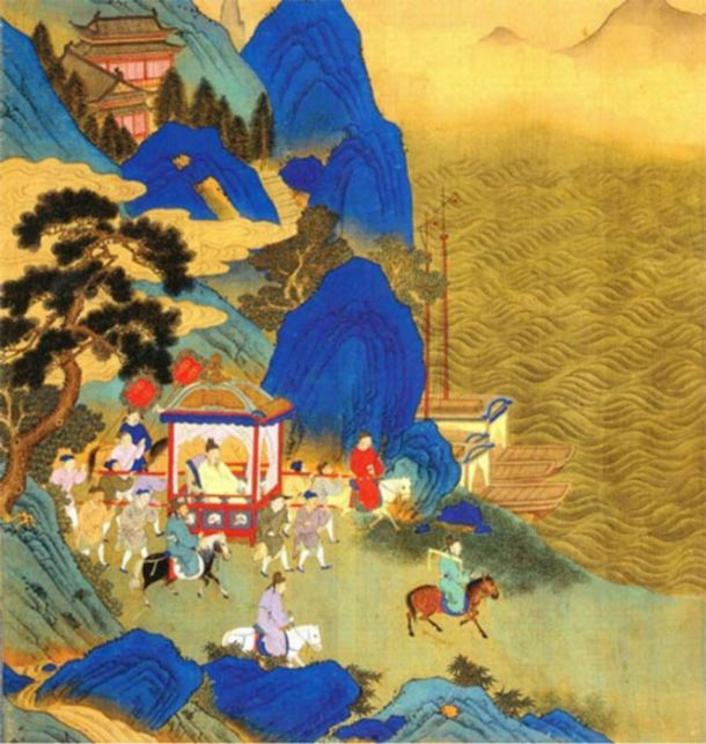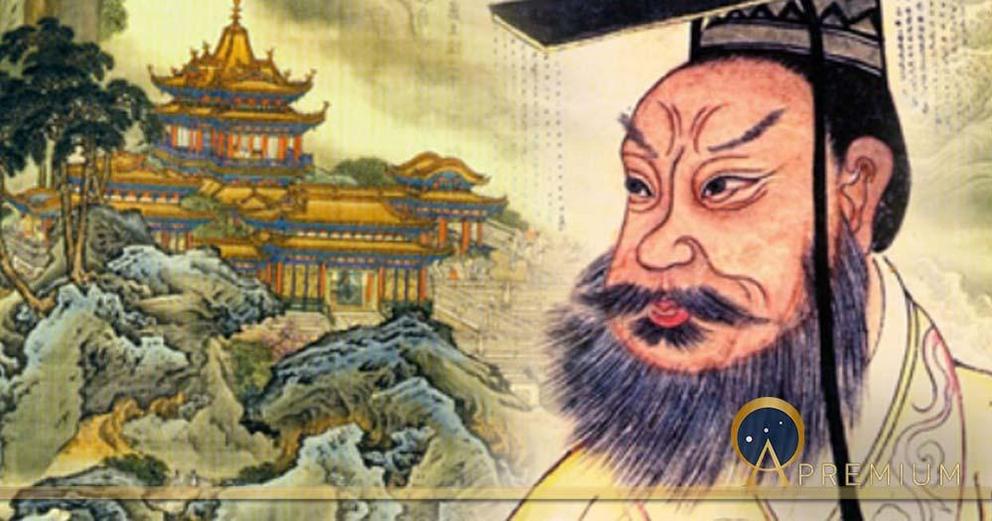Management practices of the school of Sun Tzu
Top Image : Penglai, depiction of one of the mythical islands, and Qin Shi Huang in a 19th century portrait
Sun Tzu's Art of War was, one is told, written by an ancient Chinese soldier - except there is no evidence that there ever was a General Sun Tzu. In general, the commentary on Art of War just guesses when, where and who he served, and when he sat down and crafted this remarkable book. And the book? Well it is not at all about war. There are no military instructions, no weapons, no wounded, and no loss of life. Conflict is condemned again and again as the worst possible option for achieving objectives. One is instructed how to achieve results without conflict. Conflict signifies failure.
 A Chinese bamboo book, copy of The Art of War.
A Chinese bamboo book, copy of The Art of War.
The Art of War title is a mistranslation of the title Bing-fa that, 2,300 years ago, meant ‘The Art of Diplomacy’. The Tao Te Ching, a work created at the same time provides the vision and values upon which the Bing-fa principles and methods are built. These volumes are two of the greatest ever works on strategic management and planning. With this understanding, one is able to examine the possible application of the works, and what was achieved. Those results are evident in 221 BC, when Qin Shi Huang , first emperor of China, ended the 200-year-long Warring States period in less than ten years. These states were brought together through craft and persuasion, into a remarkable nation whose structure remains intact to this day. China’s first emperor discovered how one successfully manages organizations, and relations between organizations without loss, and without conflict. Bing-fa conveys remarkable possibilities for contemporary inter-personal, inter-organizational and international relations.
 Qin Shi Huang's imperial tour across his empire. Depiction in an 18th century album.
Qin Shi Huang's imperial tour across his empire. Depiction in an 18th century album.
The Hidden Truth
Based on an excerpt of the book The School of Sun Tzu - which explains in plain language, the common sense, non-military principles captured in Sun Tzu's Art of War / Bing-fa - one can achieve the basic instructions for winning without conflict. It is not about winning and losing. It is only about winning.
A note on the military vocabulary used in Art of War. These terms were used because at the time Bing-fa's purpose and processes were new and employing familiar military terms made it easy for the people to understand the new paradigm. The present rendition uses generic, contemporary language to show that the book's subject is not military-specific.
For the rest of this article please go to source link below.

